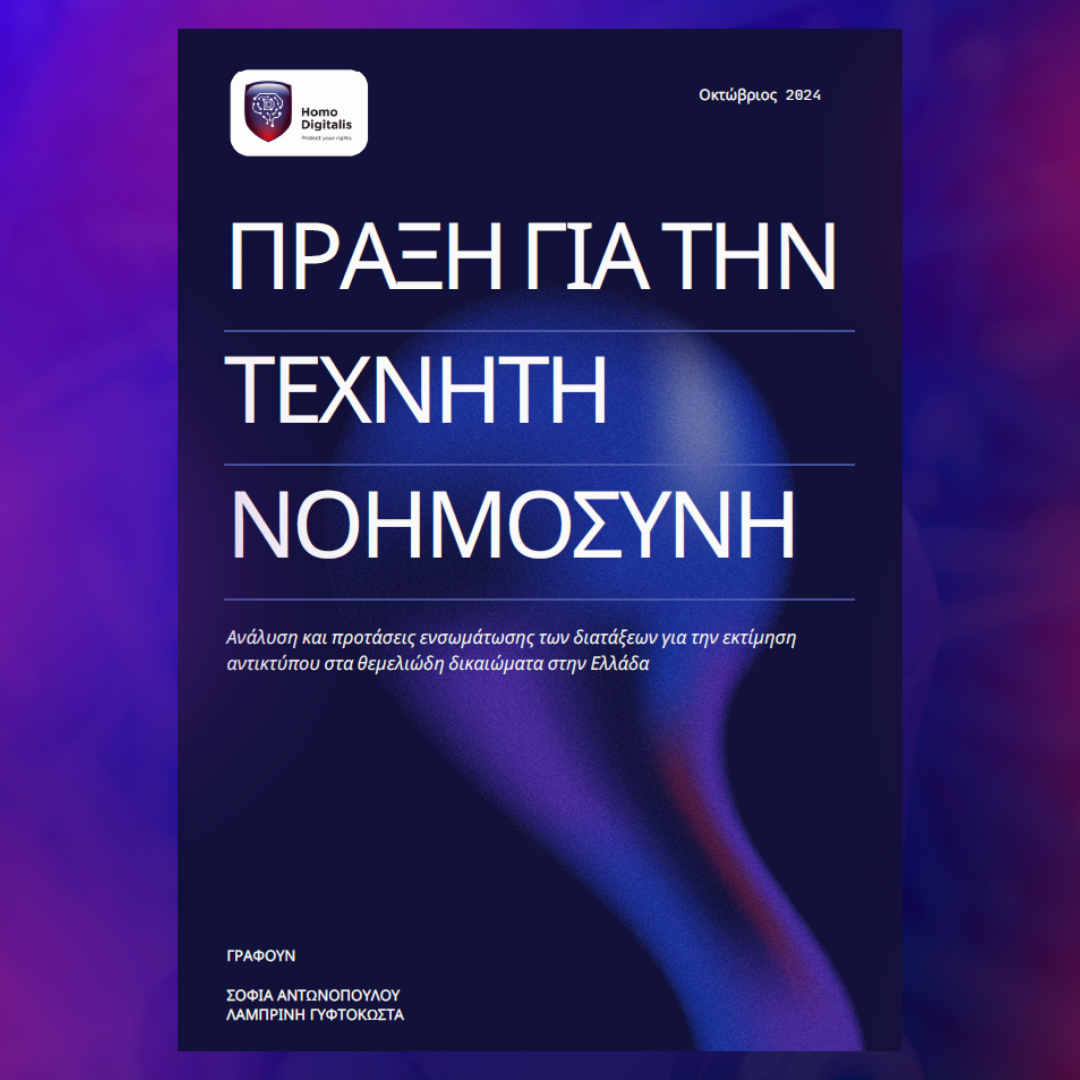We publish our first detailed study of the AI Act and the provisions of the FRIAs
Homo Digitalis publishes today its first Study on the European Regulation on Artificial Intelligence entitled “Artificial Intelligence Act: Analysis and proposals for the incorporation of the provisions on fundamental rights impact assessment in Greece”.
The authors of this first Study are our member Sophia Antonopoulou and Homo Digitalis’ Director of Human Rights & Artificial Intelligence, Lamprini Gyftokosta.
The Study is the first of a series of analyses that we will be publishing in the near future on various important provisions of the AI Regulation, which aim both to inform decision makers in Greece about important provisions of the AI Act in order to assist in its successful implementation, and to frame the public debate on AI in Greece by providing specific arguments and proposals.
The focus of the first Homo Digitalis Study is to highlight some critical issues raised by the implementation of the provisions on AI in the Fundamental Rights (FRR), from the perspective of civil society. Besides, it aims to contribute constructively to the public debate by proposing concrete solutions for an effective impact assessment process with regard to high-risk AI systems.
In summary, the main conclusions of the Study include the following concerns:
- The exclusion from the obligation to carry out NRAs of AI systems used exclusively by private services.
- The complete lack of sanctions for those who violate the provisions on TDRs.
- The ambiguities and interpretative gaps regarding how to carry out an ERA, the updating of data and the re-conducting of an ERA, the risk assessment and proposed measures, the notification of the market surveillance authority and the exemptions from such notification of the market surveillance authority; and
- The lack of transparency in the use of AI systems and the preparation of SIAs in the areas of law enforcement, migration and asylum management and border control.
It also summarises the proposals for improvement in five key points that are crucial for the effective protection of fundamental rights against any violations of AI systems:
- It is proposed to exercise discretion under Article 99(2) and to introduce sanctions for non-compliance with the provisions on AI practices. It is further proposed that the relevant sanctions should be on the same scale as those for non-compliance with the prohibition of AI practices under Article 99(3) of the Regulation.
- It is proposed to establish detailed governance arrangements with clear procedures for handling complaints and appeals and to ensure stakeholder participation in the Greek law that will incorporate the Regulation.
- Amend Law 4780/2021, the provisions of which govern the functioning of the National Human Rights Commission to assume the role under Article 77 of the Regulation under certain conditions.
- In addition to the template for conducting a NCHR, it is necessary to develop guidelines, including an extensive analysis of Recital 96,Articles 6(2), 27, 43, 46, 49 and 77 of the AI Regulation.
You can read the Homo Digitalis Study in detail here.
